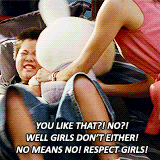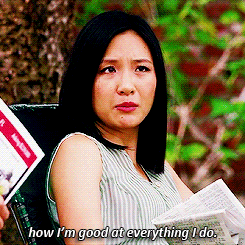Wish I could be [seen] in your world
A reflection written my staff member, Yoo-Jin Kang
As an Asian-American woman, I’ve always struggled with finding people who look like me in the larger media. You see, May is Asian Pacific Islander month, and regrettably, I am not sure who I can expect to be featured during this month because I am so unfamiliar with Asian historical figures and their contributions.
Growing up in the United States education system, I had always learned about other important figures in our country: white presidents (except our current one!), famous white men who made *amazing* contributions to our society, and the few African-American historical figures who were brought up as part of our history lesson, like Frederick Douglass, Rosa Parks, and Harriet Tubman. What I didn’t consciously realize for a long time was the lack of Asian representation, across the board, throughout my entire schooling and life. Why was this the case? Could it be that Asian Americans did not make useful or noteworthy contributions or impact to our society? Could it be that the only famous Asian American that I would ever know about would be figure skater Michelle Kwan?!
Of course not.
I can’t help but think about how the paradox of the minority model stereotype fits into this lack of representation and recognition. This stereotype can be truly harmful because it can create a silencing and minimizing effect on the contributions, successes, and voices of Asian Americans who are “expected to do well” anyway, and so it’s not such a big deal. Growing up, I couldn’t help but feel a quiet voice that told me that no matter what I did, I would not get recognition for it as a individual person, but would be praised because:
“Oh, you Asian people are so good at _____” or “have always been great at _______.”
Not only was this isolating for me… it also contributed to this liminal feeling I had of not being considered white, but not being labeled as a “person of color.” It took until college for me to realize that I, too, belong, and that my struggles were also worthy of speaking up about.
When I think about television shows and movies, this is where I feel the most isolated from the people who supposedly “represent” me in the media. Often, if I ever saw a character who looked similar to me, I noticed their role often consisted of stereotypical characteristics that only perpetuated already trivializing cultural beliefs.
Often, we seemed to be lumped with characters that had little personality — characters who seemed to serve one purpose: The math/science whiz. The person at the computer/phone navigating directions, while all the other characters were out kicking bad-guy butt. The repressed and studious best friend. The fetishized “oriental” model (often with chopsticks in her hair). Or the person with the broad “Asian” accent who spoke broken English, often seen working at a Chinese restaurant. Even when there was “representation” of an “Asian” character, I couldn’t relate to them at all.
Moreover, the term “Asian” is so broad. As an ethnic group, “Asian” encompasses so many regions, all with many similarities and differences in culture and values, and I can’t help but think that it’s harmful to lump so many different regions with one word, when we don’t recognize and pay attention to our differences. This May, I plan to learn more about not only my heritage, but also about the different cultures and contributions that make up the pan-Asian community. I hope you will join me and I challenge you to also recognize when a character of color, in any form of media, is being used as a trope rather than a valued person.

[P.S. I haven’t seen the show yet, but I’ve heard a lot of mixed reviews for the new show, “Fresh off the Boat“. On one hand, I hear people who love the show because not only are they seeing a family that might look like them, they are also identifying with some of the immigrant and often humorous experiences that are portrayed in the show. On the other hand, I hear about people who highly dislike the show, stating that it fulfills stereotypes about Asian immigrants, specifically with the notion that Jessica Huang (the mother) is a “tiger-mother“. It’s interesting to note that due to the scarcity of representation in our media, we often feel that when we do see people who look like us…we want/ expect them to be perfect. There is a fine balance to be made between respecting and honoring a person’s culture and background, as it influences who they are, and completing erasing a person’s racial identity to make it more accessible for a whiter audience.]
Posted: April 8, 2015, 10:00 AM

